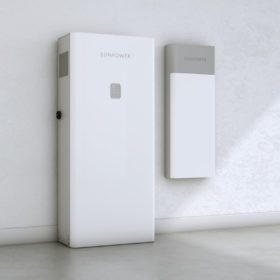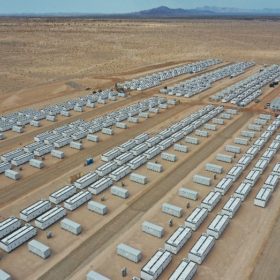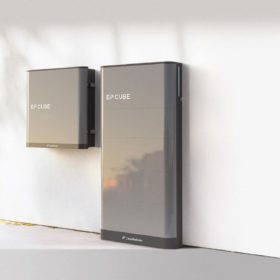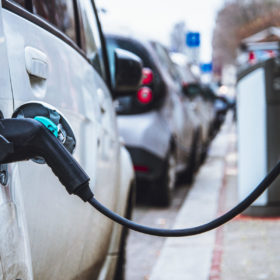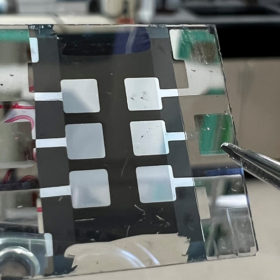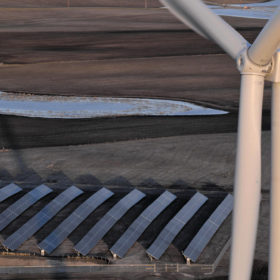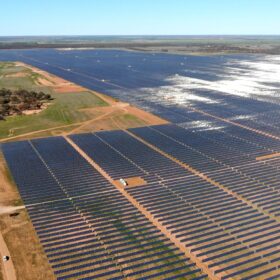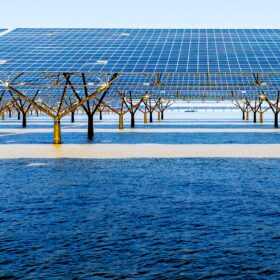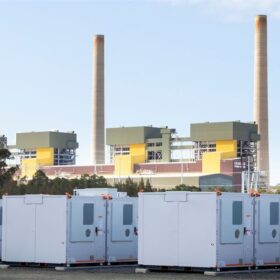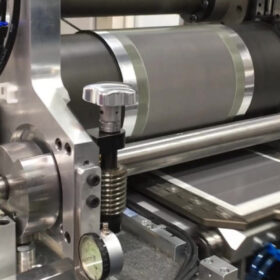Sunpower launches two new batteries for residential applications
The two batteries have a storage capacity of 13 and 19.5 kWh, respectively. Both lithium-ion systems use LiFePO4 as the cathode material and have a round-trip efficiency of over 86%.
FTC Solar unveils new self-powered tracking system
United States-based engineering firm FTC Solar has unveiled a new self-powered solar tracking system which it says requires up to 36% fewer foundations than existing technologies and enables an estimated 5% greater energy output for a given parcel of land.
New grid-scale LFP battery from Canadian Solar
Solar PV technology manufacturer Canadian Solar plans to quadruple its battery manufacturing capacity by the end of 2023. A part of that strategy is a new 2.8 MWh lithium-ferro phosphate battery which will be unveiled at the RE+ conference in California this week.
Canadian Solar to unveil all-in-one residential battery and inverter
Chinese-Canadian PV heavyweight Canadian Solar is set to unveil a new residential energy storage unit that is compatible with new and existing solar arrays and is customisable from 9.9 kWh to 19.9 kWh capacities.
Scientists study transparent organic PV materials for solar window applications
A team of scientists in the United States have designed a transparent organic photovoltaic material for solar window applications in commercial buildings.
Australia is failing on EVs. California shows it’s possible to pick up the pace
Among the many similarities between California and Australia, both are impacted by bushfires and climate change, and both are home to larger cars and trucks than is the norm in developed countries. They are dissimilar, though, when it comes to electric vehicles and vehicle regulations. While California has been pursuing low-carbon and electric vehicles for decades, Australia has trailed most developed nations.
US investment giant snaps up New Zealand rooftop solar specialist
American investment behemoth BlackRock has agreed to acquire New Zealand rooftop solar PV and battery energy storage specialist SolarZero as part of its push into renewable energy in the Asia Pacific region.
US poised to hit 336 GW of solar by 2027
Solar capacity in the United States is expected to grow from 129 GW today to 336 GW by 2027, according to the country’s Solar Energy Industries Association and research firm Wood Mackenzie.
Perovskite solar cell achieves 24% efficiency, retains 87% of output after 100 days
Researchers at the National Renewable Energy Laboratory in the United States have made a breakthrough in high efficiency and stability for perovskite solar cells.
Weekend read: Teamwork makes the green work
Solar-wind hybrid plants are rapidly becoming mainstream, and in booming markets like India and the US these hybrids are increasingly preferred to singular projects despite the higher installation cost. There is no shortage to the benefits of hybridisation, from a smoother power output profile to the cost saving of grid connection. But getting the balance right for new projects and retrofits remains a challenge. Blake Matich reports on this growing trend.
